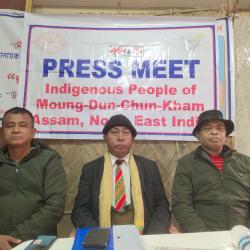The Wildlife Conservation Division of Bhutan along with the International Fund for Animal Welfare – Wildlife Trust of India (IFAW-WTI) have launched a month-long training for around 450 forest rangers for effective wildlife crime prevention in the landlocked country.
The skills learned will help the rangers deal with a wide range of issues to protect the country’s natural heritage including the tiger. Each staff will also be equipped with field kit sets (rucksack, winter jacket, rainsuit, water bottle, cap, sleeping bag) to help them in their daily duties, including specially-made kits for frontline staff working 5000 masl protecting the rare snow leopards.
Sonam Wangchuk, Chief of the Wildlife Conservation Division (WCD) of the Royal Government of Bhutan, said, “The training programme could not have been timed better than this. Our people in the field need better incentives, training and better equipment to do their job of saving our natural heritage. People become effective when their needs are fully met and I must take this privilege to thank our counterparts at the WTI-IFAW for starting this in some way.”
The session (each lasting three days) began on Sunday for over 50 participants including 13 ladies, of Wangdue Forest Division.
Subsequently, the IFAW-WTI team will travel and conduct these trainings for staff of Jigme Singye Wangchuk Naitonal Park (NP), Toorsa Strict Nature Reserve, Wangchuk Centennial Park, Thrumsingla NP, Bumdeling Wildlife Sanctuary (WLS), Sakteng WLS, Samdrup Jongkhar FD, Samtse FD, ending on November 17 at Jigme Dorji NP, in coordination with the local authorities in each of these areas.
“It really does take the entire global community to protect our remaining wildlife. The government of Bhutan is doing their part to help protect wildlife by preserving habitat, setting sound policies and committing staff to the field. IFAW is proud to fund ranger training and equipment so we can help them. The animals will be safer from poachers and so will the rangers and communities,” said Azzedine Downes, IFAW, President & CEO.
The trainers include authorities of Bhutan as well as IFAW-WTI members from India.
The Bhutanese trainers include Sangay Dorji, Head of Carnivore programme of the WCD, Forest Officers – Kinley Rabgay, Ugyen Tenzin, Tshering Zam, and Officer-in-charge of Toorsa Strict Nature Reserve, Namgay Wangchuk.
IFAW-WTI trainers include Aniruddha Mookerjee, who has been in the field of wildlife conservation for over four decades, Jose Louies, who assists authorities in India in wildlife trade control activities, and Krishnendu Mondal, Officer-in-charge of the IFAW-WTI Van Rakshak Project (Guardians of the Wild) in India.
“Bhutan is one of the tiger-range countries’ that have overall good records of wildlife conservation and protection. Yet, wildlife conservation in a globalised and interconnected world can be quite a complicated task. Effects of actions in one country or region have repercussions on another,” said Vivek Menon, Regional Director – South Asia, IFAW and Executive Director, WTI. “We are sure that this training will help the rangers continue their efforts better, even as we thank them for their efforts on saving the tiger among other wildlife.”
In June last year, the team had covered Royal Manas NP and Phibsoo WLS adjoining India’s Greater Manas region. A total of 107 rangers were trained then.
As with earlier sessions, the rangers will not only be updated on Bhutanese laws but also international laws on wildlife conservation. The experienced trainers will also apprise the rangers on effective patrolling and ambushing techniques, collection and preservation of evidences/samples, preparation of offense reports, identification of original and fake wildlife articles, etc.
Field exercises will be conducted on wildlife crime investigation, use of global positioning systems (GPS), camera traps, and other field crafts. The participants were also oriented on first aid for snake bites, and basic wildlife rescue and rehabilitation.
- 20480 reads










Add new comment